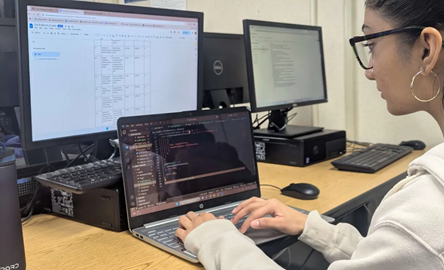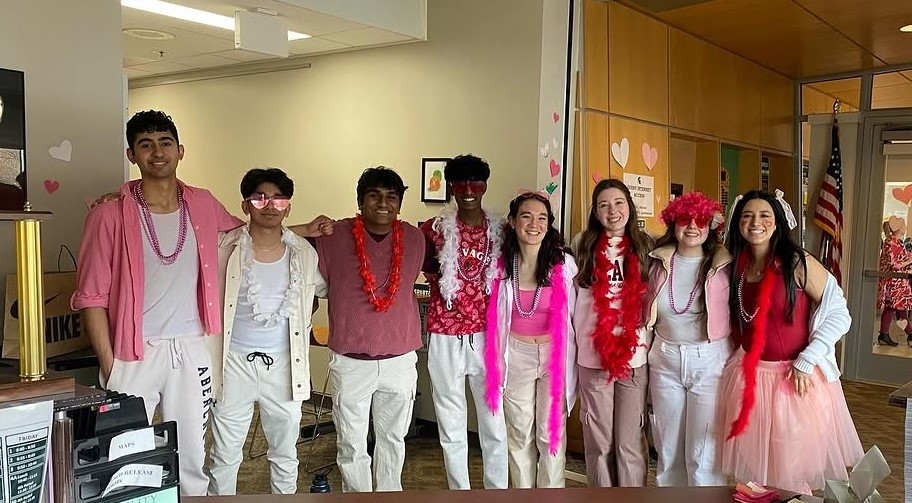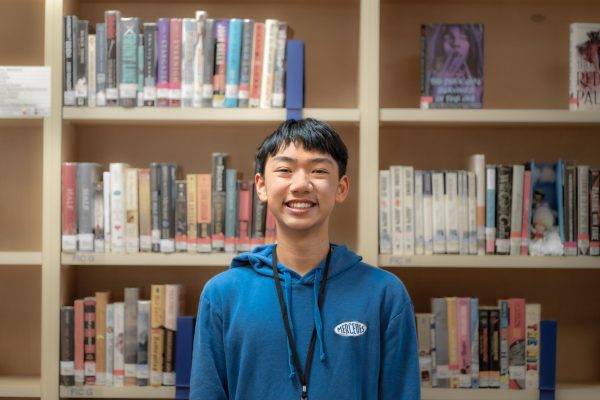According to a recent survey by Aquarius AI, 74% of teachers reported using technology that incorporates AI in their classrooms helping to revolutionize the way students learn. From writing assistance to solving math problems, AI is taking center stage in education. While some students and teachers are embracing this new era in technology, opinions remain divided on whether it’s truly beneficial or creates more.
Artificial intelligence is a familiar companion in classrooms: offering tools like ChatGPT and Grammarly to assist with essays, and math-solving apps that show how to solve a certain equation step-by-step. Some teachers use AI-driven apps for personalized lesson plans, while students can get real-time feedback from AI without waiting for assignments to be graded.
Sierra Park, a Junior, sees AI as a helpful resource for students when it’s used the right way. “I think AI is helpful, not for copying but you can use it for research and inspiration.” For students like Park, AI provides a way to find ideas or seek assistance when they feel stuck on assignments. Rather than turning to it for answers, many students say they use AI to deepen their understanding of the specific subject.
Other students agree that AI has its advantages but caution about overuse of it. “It is a good tool to use to enhance your learning, rather than just cheating,” says Shweta Sundar, also a junior. Sundar believes AI can push people to think critically and creatively when it is used as a support tool rather than their main tool of reliance.
Despite clear advantages, concerns emerge. Many worry that AI might promote laziness or diminish students’ ability to think independently. With AI-generated answers readily available, the temptation to misuse the technology is high. Students need to know where to draw the line between using AI as a helpful resource, and relying on it to do the work for them.
There is also the matter of privacy. Many people worry how their personal data is being collected and used by AI tools. Schools must find ways to ensure the privacy of students is being protected as well as allowing them to benefit from the technology.
It is clear that AI and other digital tools are here to stay. The challenge will be finding a balance between utilizing the capabilities to enhance learning while also ensuring students are still developing critical thinking skills along with independent thinking that are crucial for the future.
As Skyline embraces AI, both students and teachers must reflect on how to use it responsibly. After all, technology is only as powerful as the people who use it.
















